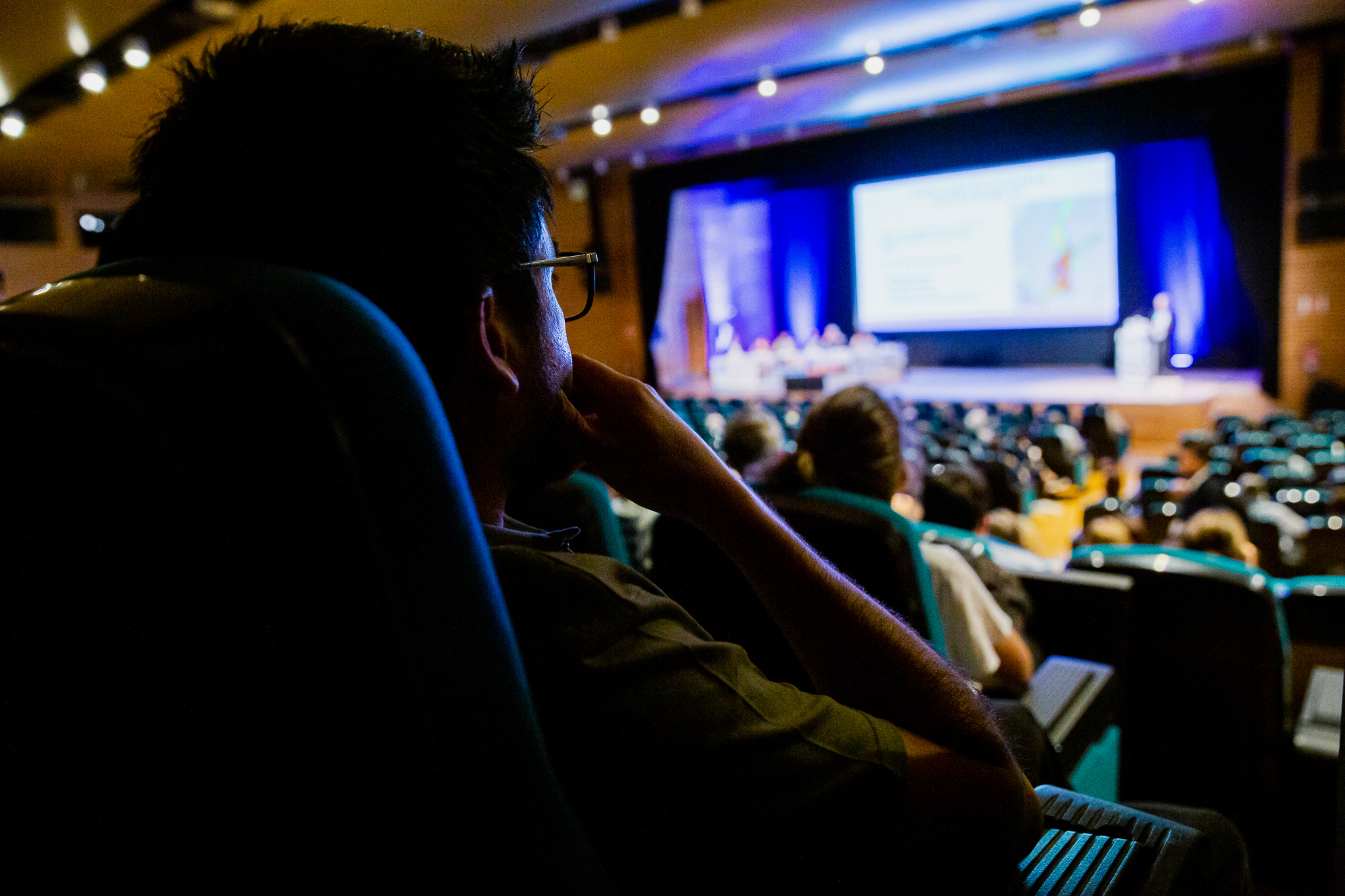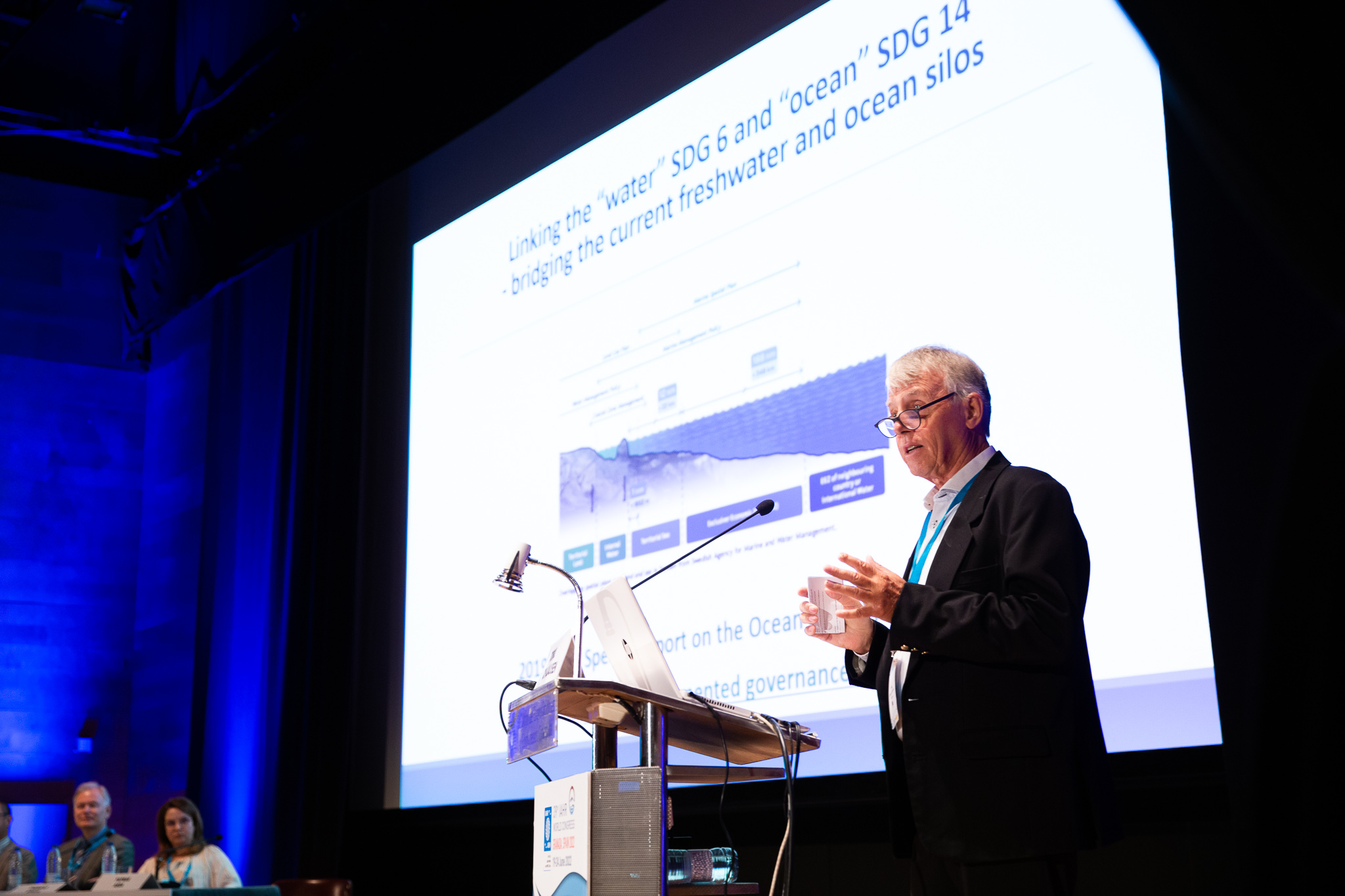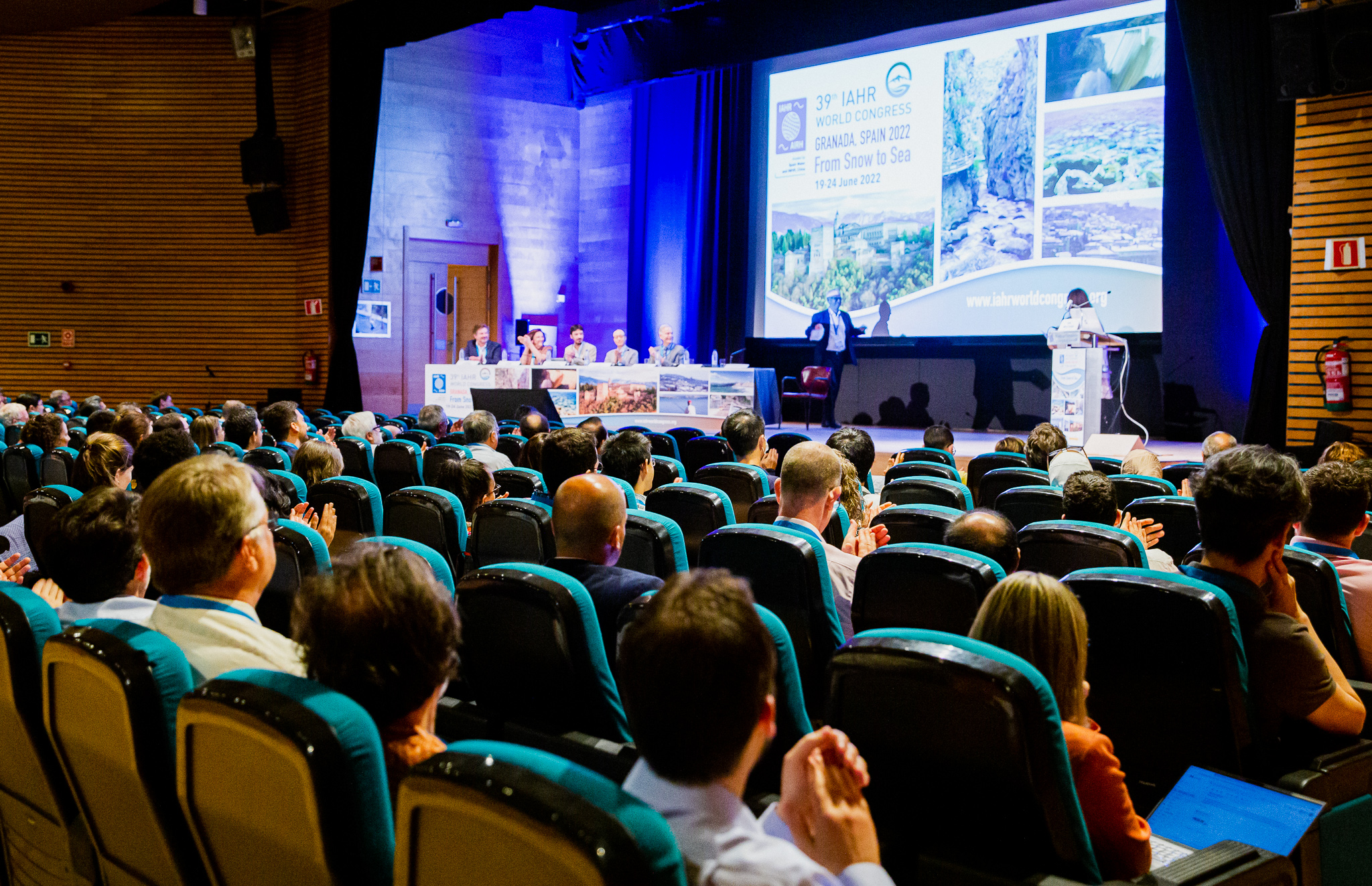High-Level Panel: "From Snow to Sea""Managing enclosed seas under climate threat"
Background
 As the first High-Level Panel of the 39th IAHR World Congress, this session set the stage for the overall theme “From Snow to Sea”. After a brief general introduction to the overall subject, the Panel focused on the sub-theme “Managing enclosed seas under climate threat”.Our oceans are under serious threat, largely due to the effects of land use, pollution, habitat degradation, freshwater mismanagement and climate change. Increasing competition for scarce and often polluted water threaten human livelihoods and ecosystems and biodiversity. As a result, the oceans suffer from dead zones due to oxygen depletion, plastic islands, dying corals and wetlands, and key marine species are disappearing.
As the first High-Level Panel of the 39th IAHR World Congress, this session set the stage for the overall theme “From Snow to Sea”. After a brief general introduction to the overall subject, the Panel focused on the sub-theme “Managing enclosed seas under climate threat”.Our oceans are under serious threat, largely due to the effects of land use, pollution, habitat degradation, freshwater mismanagement and climate change. Increasing competition for scarce and often polluted water threaten human livelihoods and ecosystems and biodiversity. As a result, the oceans suffer from dead zones due to oxygen depletion, plastic islands, dying corals and wetlands, and key marine species are disappearing.
Climate change intensifies the problems. Sea temperatures and sea levels are rising, extreme weather events are becoming more severe and frequent, and the vital capacity of oceans and coastal wetlands to save our planet by absorbing carbon is threatened.
The freshwater and ocean challenges are interdependent. Land-based activities affect our seas, and sea level rise, cyclones and salinity intrusion threaten coastal and riverine communities. These challenges cannot be addressed through separate actions taken by the freshwater and ocean communities. We need to bridge the current silos between them and address our challenges from a holistic system perspective – “from snow to sea”/”source to sea” – through coordinated management of land, freshwater, coasts and the ocean. The Sustainable Development Goals on water (SDG 6) and oceans (SDG 14) must be implemented hand in hand.
The Congress in Granada took place in the basin of one of the world’s most valuable enclosed seas, the Mediterranean, and beautifully set with snowy mountains in the background. We need to accelerate source to sea action, and as a threatened enclosed sea the Mediterranean is a strong case in point.
Purpose and scope of Panel
The purpose of the High-level Panel was to bring senior actors from the freshwater and ocean communities together to share experiences and visions for source-to-sea management, raise awareness about the issues, and discuss challenges and solutions at the local, national and international levels in achieving coordinated implementation of SDG 6 and SDG 14.
The discussions

The session was opened by a brief overall stage-setting by Moderator, Dr. Torkil Jønch Clausen, Chair of the Action Platform for Source-to-Sea Management.This was followed by a stage-setting keynote on “Source to Sea management challenges in the Mediterranean Sea” by Ms. Charafat Afailal, Former Minister in charge of Water in Morocco and Steering Committee member of the Global Water Partnership (GWP). The keynote address focused on the serious impacts in the Mediterranean due to human impacts and climate change, calling for cross-sectoral and multi-stakeholder source to sea approaches. A concrete step forward is the new “Healthy Rivers for Healthy Oceans” program under the UN Ocean Science Decade, led by GWP, SIWI and UNESCO-IOC.In their introductory interventions, the Panelists addressed various aspects of the theme:
Prof. Helmut Habersack, Institute of Hydraulic Engineering and River Research, Austria, talked about importance of rivers and the continuity of water, sediments, nutrients or fish as well as human usages from mountains to coasts and back. The case of Danube River highlights the need of coordination between the Danube river basin committee (ICPDR) and the Black Sea Committee in order to address the issue of e.g. sediment transport and coastal erosion.
Prof. So Kazama, Hydro-Environmental System Laboratory, Tohoku University, Japan, addressed the climate and snowmelt issue and how changes in snowmelt have on costal and marine ecosystems, highlighting the need of communication between montain and costal experts. .
Prof. Fernando Magdaleno Mas, Deputy Director of Terrestrial and Marine Biodiversity, Ministry for the Ecological Transition and the Demographic Challenge, MITERD, Spain, focused on the land-water-biodiversity nexus and the need for coordination between stakeholders from continental to transitional and coastal waters.
Prof. Nadia Pinardi, University of Bologna, Italy, Head of the UN Oceans Science Decade program CoastPredict, provided a brief summary of her previous Plenary Keynote speech, highlighting the vision for an “integrated freshwater and ocean monitoring system” with international standards to couple SDG 6 and SDG 14.
Dr. Stefan Szylkarski, Executive Vice President for Water Resources, DHI, Australia, discussed the Great Barrier Reef in Australia as an open, yet enclosed system, seriously threatened by land-based activities and the need for coordinated research activities on transport pathways through river basins to the sea in order to restore the health of the barrier.
Key messages to UN global Oceans and Water Conferences
 In the following Panel discussion, focus was what key message on “snow to sea” that the IAHR World Congress in Granada should convey to the upcoming major global events: the UN Oceans Conference in June 2022 in Lisbon, and the UN Water Conference in March 2023 in New York. Imagining a brief ‘elevator pitch’ to global decision-makers: where do we go from here, and what key actions must we take?
In the following Panel discussion, focus was what key message on “snow to sea” that the IAHR World Congress in Granada should convey to the upcoming major global events: the UN Oceans Conference in June 2022 in Lisbon, and the UN Water Conference in March 2023 in New York. Imagining a brief ‘elevator pitch’ to global decision-makers: where do we go from here, and what key actions must we take?
The following key messages emerged as outcome of the discussions:
Research, engineering, management and legistative activities shall operate in a coordinated way across domains in order to develop operational source to sea management approaches
Governance institutions responsible for regulating and managing inland water resources, coastal areas and marine environments shall develop systematic ways to share data and information
There is the need for an “integrated freshwater and ocean monitoring system” to support coordinated implementation of SDG 6 and SDG 14
Coastal and hydrologic research communities shall together address the need of integrated, thematically cross cutting research on pathways across river basins, from “snow to sea”, to understand and address challenges on coastal and ocean environments posed by land-based activities
The Panelists thanked IAHR and the Spanish Organizers for the opportunity afforded by this Panel discussion and expressed hope that the key messages will be taken forward to upcoming global ocean and freshwater fora in Lisbon 2022 and New York 2023. A process will also be in place to bridge from Granada to the IAHR 2023 WWC in Vienna with the theme “Rivers – connecting mountains and coasts”